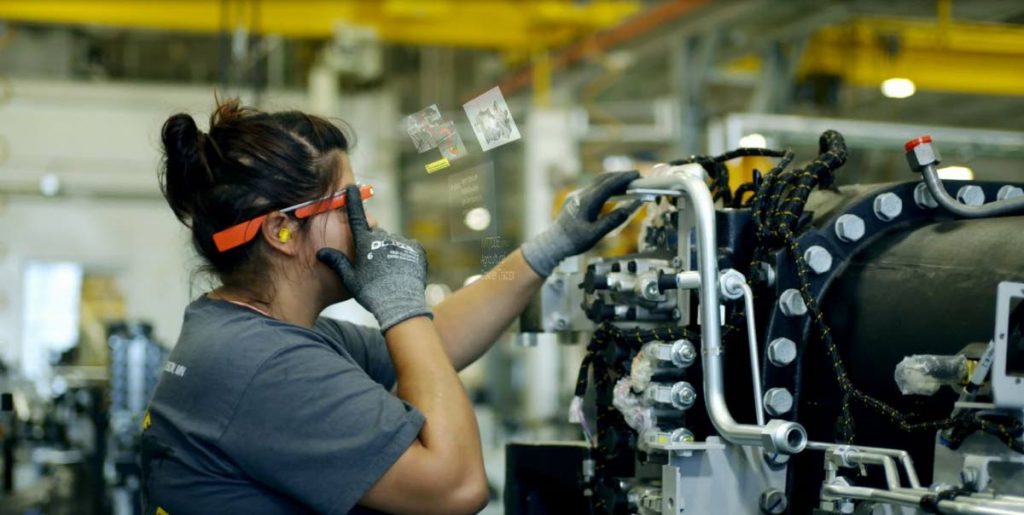Covid19: a catalyst for working from home?

The covid19 virus brought Italy to a standstill on Monday. Public gatherings were banned, sport events were suspended, and movement was restricted as the country’s 62 million plus citizens were ordered to stay at home by Prime Minister Giuseppe Conte. Globally, covid19, a new variation of the coronavirus, has infected over 118,000 people and killed over 4,291, paralysing countries and major cities around the world. On Thursday, the World Health Organization (WHO) declared it a pandemic.
The UK's chief medical adviser Prof Chris Whitty asked people to self-isolate for seven days if they show mild symptoms, while New York City’s mayor Bill de Blasio has instructed people to work from home. Thousands more in New York have been officially ordered by state officials to stay under quarantine.
In China – ground zero for the virus – cities usually crowded with millions of people are now ghost towns. The country’s Wuhan province, where the first cases of the virus were recorded late last year, has been on lockdown.
The virus has had a rapid infection rate and the number of people and places affected has inevitably led to economic consequences because of disruptions to worker productivity and supply chains. Globally, millions of people are protecting themselves through self-quarantine to avoid contracting and/or spreading the virus.
To adapt to the worsening situation and avoid loss, companies like Amazon has asked US employees in several states to work from home. On Monday, the US Securities and Exchange Commission asked all its Washington employees to do the same.

The conversation about businesses using work-from-home models is not new but the effects of covid19 on worker mobility and productivity has renewed the dialogue of shifting work models to complement the digital age.
In TT, while there are no reported cases of covid19, local businesses must consider the effects of a potential outbreak and how they will navigate a situation where the movement of employees are restricted.
Business Day spoke to local experts in the field of labour and technology who discussed this country’s reliance on traditional models of work and its readiness to adopt a work-from-home model, not only in the face of a covid19 outbreak but as a blueprint for the future.

Conversation long overdue
Chairman and managing director of Personnel Management Services Diana Mahabir-Wyatt thinks the question of local businesses adopting work-from-models is relevant given potential fears of a covid19 outbreak but is long overdue.
“It does not have to be a virus that moves companies to get into a working from home system. There’s traffic, which has become so dire that in many cases it can add up to six hours of time onto somebody’s working day.
“This takes out from the hours of productivity (and) is very stressful physically, emotionally and psychologically on employees,” she said.
There is no textbook guarantee to achieving profitability and productivity under work-from-home models, she said. Companies must properly restructure their organisation’s policies to ensure that when working from home employees have access to appropriate work-spaces at home, strong supervising mechanisms and self-discipline.
“When you are working from home the whole concept of work changes. There isn’t any compulsion about how many hours you work. If you want to work from home, you have to show you are self-disciplined,” said Mahabir-Wyatt.

Opportunity for expansion
Former DeNovo corporate and external affairs manager Lawrence Arjoon, now Chief Executive Officer of The Heroes Foundation, notes the work-from-home concept has had a presence in TT for quite some time but what a covid19 outbreak may do is present an opportunity for the model to be expanded and potentially streamlined.
“As technology continues to disrupt the way we work and do business, current workplace models will undergo changes. We are all going to be faced with the choice of disrupt or be disrupted,” said Arjoon.
During Arjoon’s tenure at DeNovo, the upstream natural gas company became primarily digitised through the development of a technology-driven, cloud-based model which allowed for its operations to be accessed from anywhere in the world. He plans to leverage those learnings to implement a similar model at Heroes
“It's possible, practical, and I dare say, critical for organisations to be productive while enabling teams to work remotely."
While the trend of working from home becomes streamlined, especially in the face of covid19, Arjoon said traditional work models will continue to hold relevance in sectors like construction, printing, manufacturing and oil and gas production where offshore installations are not remotely manned.
“Some institutions may also not have the requisite technology to support a model evolution and may be likely to favour a nine-to-five workday with the attendant bureaucracy and clocking of hours. Technology and AI continue to disrupt how businesses operate, providing increasing efficiencies and creativity in how work is delivered, and we have numerous opportunities to leverage global trends and learnings locally,” said Arjoon.

Industrial Age mindset
Co-founder of Tech Beach Retreat Kyle Maloney said in today’s digital age it is important for people to have access to the ability to do their job from anywhere in the world. Noting that many companies do not need to have employees physically present, Maloney said, “A lot of companies in TT battle with the fact of thinking that if people don’t show up to work they are not going to do work and that’s just the unfortunate reality that we sill face here today.”
That predominant local thinking that hours in the office translates to productivity comes from the industrial age, he said. Modernised work tasks require people working fewer fixed hours behind a desk and more problem-solving through innovation, which can be done at anytime and in any environment.
“You should take a more strategic approach and look at what jobs can be done away from the office and what jobs have to be done at the office. Begin making differentiations between those two and allow people who can work from home to do just that and really begin evolving the managerial style that has kind of been handed down to us for generations.”
Productivity 'through the roof'
TT-born financial analyst Samantha Seecharan, who currently works in New York, shared her experience of working from home. On average, she saves three to four hours each day as she avoids the traffic associated with commuting and has seen reduced stress levels.
“I feel rested every day and my productivity has been through the roof since working fully at home. There are way fewer distractions at my home so I’m able to put a lot of focus on every task."
There are busy days, which can be stressful, but Seecharan said they are few and she spends a lot of time focusing on her mental health by going to the beach, library, different coffee shops and working from these places.
Though an overall positive experience, she emphasised the importance of finding balance. While low volume “typical workdays” are manageable, for larger projects with tight deadlines she can easily find herself doing workdays of 12 hours and more.
“My thinking is that since I’m home anyway, it’s not a problem to put the extra work and extra time. However, I’ve been struggling with striking that balance and my mental health has suffered a bit.”
Despite this, Seecharan sees work-from-home models being the way forward and she encourages businesses to embrace the idea, even as she noted the need for proper training on work-life balance. Her employers are satisfied with her output and she receives positive feedback on an ongoing basis, she said, so the model can be profitable if executed smartly and paired with strong leadership.

Comments
"Covid19: a catalyst for working from home?"